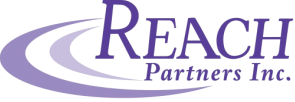|
It’s hard to know if the job’s done and successful without a plan. The planning stage of a project is vital to the successful outcome for the desired product or service. The plan identifies the process, players, benchmarks and goals and objectives essential to success. Follow the plan to keep on track and refer back to the plan when options seem to be too many or too few. If you lose weight without a plan, you and your doctor should be alarmed-there could be underlining health issues to sudden and unexplained weight loss. To be successful in making change to your body, you plan around your lifestyle: you plan to approach your next meal and the ones that follow; you plan to get up early to start and complete your next work-out and the succession of those that build strength and endurance. You plan to do the exercise that works for you, your fitness level and your body. You set the benchmarks for success based on your individual need. You think through the potential risks and pitfalls and you monitor and adjust to get yourself back on track when you slip. Your plan tells you when you’ve realized success and can celebrate. Same goes for your next project. Studies show we don’t operate well when we have to make many choices in a day. The considerable noise that surrounds us in everyday decision making forms a multitude of distraction to your project’s goal. Each of us has a multitude of responsibilities and demands; by relying on the plan as a filter, decisions can be made more quickly, if not with ease. Barry Schwartz‘s book The Paradox of Choice (here’s his TED talk) provides a pretty convincing argument that more is not better.
With a plan in place choices are naturally limited and focused on the end goal. A plan mitigates your exposure to choice so that you can focus attention and reason on the options that further the project. In your personal experience the same holds true, Szu-chi Huang says "People fail to realize that relatively rigid structures can often simplify goal pursuit by removing the need to make choices, especially when people are already well into the process.” A plan is a view into the future. It takes time to create a plan. Yet, the time invested in imagination, consideration and review can actually save time during project execution. At the most basic, the plan identifies realistic expectations in defined deliverables, approach, and scope, there is a project org-chart, and the team understands all their roles and responsibilities, a mechanism for planned communications, a detailed schedule, status and milestones. Unidentified risks can take a big bite into the budget, schedule and scope, so during the planning process the team is charged with imagining issues and the steps and funding needed to deescalate a problem. A plan is not static. Things change, and managing the changes is key to a successful project. Without change control, A key to a good plan are the formal change control procedures to assess and communicate changes to make sure the right people are involved in the decisions, communicate to manage expectations and avoid confrontations. Reach Partners defines a detailed plan for executing solutions. We organize the details and resource the steps along the way, ensuring your project stays on goal, on budget and on time.
0 Comments
Your comment will be posted after it is approved.
Leave a Reply. |
Reach PartnersYour partners in leadership. Categories
All
Archives
July 2024
|
|
|
Reach Partners, Inc
3330 Fiechtner Dr. Suite 100 Fargo, ND 58103-2321 701-271-8170 Copyright (C) 2024 Reach Partners Inc.
|

